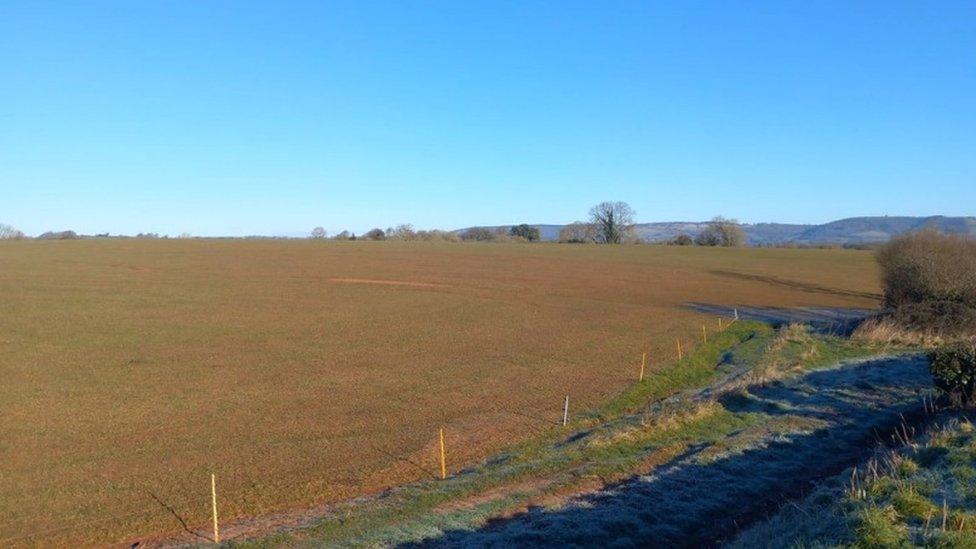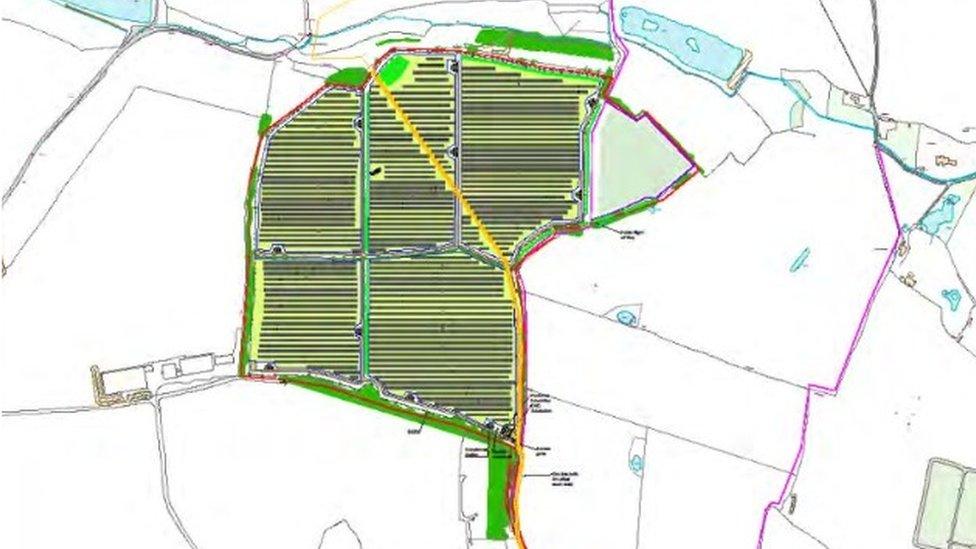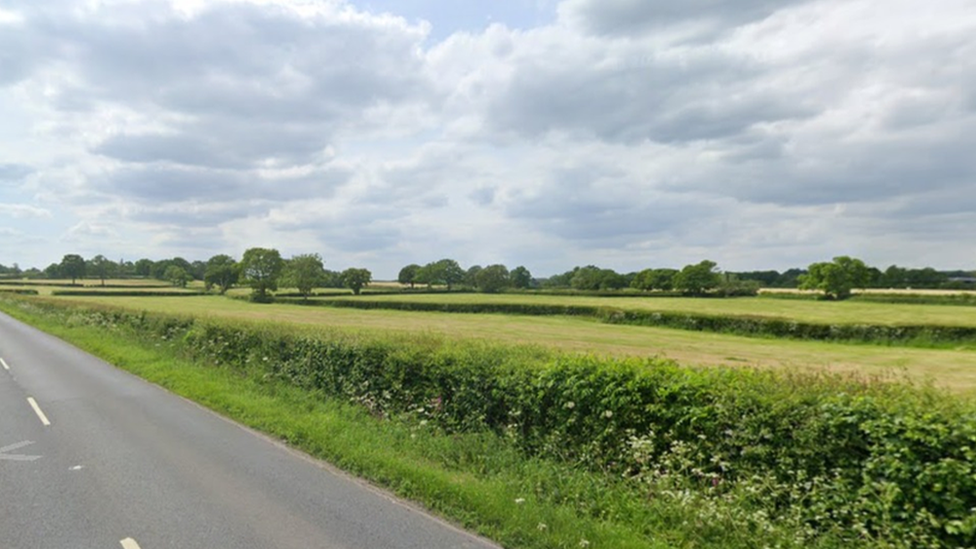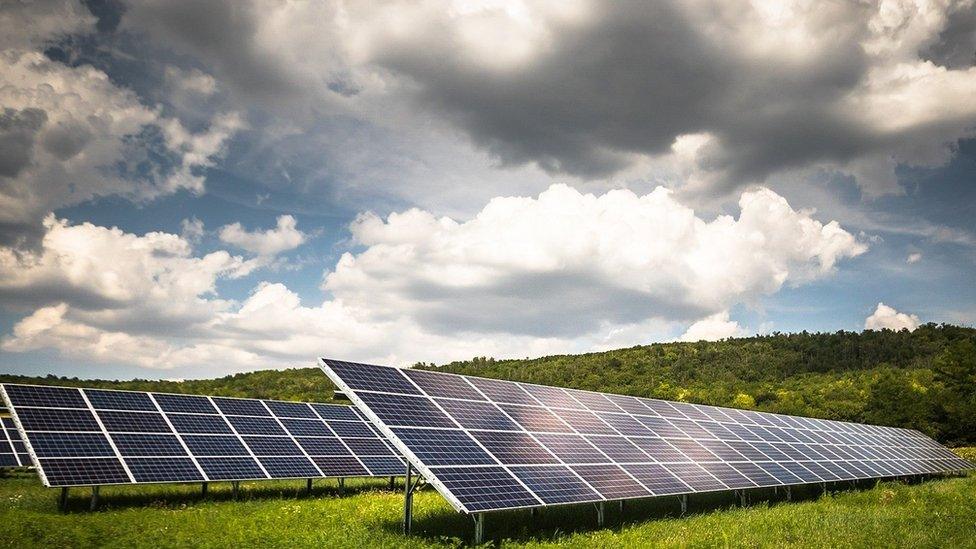Solar farm to be built on Somerset farm land despite concerns
- Published

People objected to the proposals, arguing that the UK's food security was "critical"
Large amounts of farmland will be put out of action for 40 years after plans for a new solar farm were approved.
Councillors gave the green light for the 76-acre farm near Milverton, which could power up to 7,000 homes a year.
A number of people objected to the proposals, arguing that the UK's food security was "critical" and there were more appropriate sites available.
But Somerset Council's planning committee argued it was needed in light of rising demands for electricity.
Novus Renewable Services Ltd will build the solar installation north of existing buildings at Preston Farm in Preston Bowye, with access from the B3227 which links Taunton and Wiveliscombe.
The site will be operational for 40 years, with sheep being allowed to graze during its operation and the land being returned to full agricultural use after 2064, the Local Democracy Reporting Service said.
'Good agricultural land'
The majority of the site comprises agricultural land which is classified by Defra as grade 2 or grade 3a - meaning it is among the more fertile and versatile for growing crops.
Philip Knowles, who lives near the existing farm, was among the local residents who spoke against the plans when the council's planning committee met in Taunton on Tuesday.
He said: "Senior political figurers are concerned that we are installing these facilities at the expense of good agricultural land.
"We currently have a climate emergency - how much longer before we have a food emergency as well?"

The site will be operational for 40 years, with sheep being allowed to graze during its operation
However, Dr Ian Gauntlett, a retired anaesthetist and Milverton parish councillor, said Britain's need for energy security should be the primary concern.
"We're facing a massive climate crisis. Urgent expansion of renewable energy sources is absolutely essential," he said.
"With regards to agriculture, looking across the nation, ground-mounted solar panels take up just 0.5 per cent of usable farmland - less than one fifth of the space taken up by golf courses."
Somerset councillor Mike Rigby said: "I think we need a really good reason to refuse new energy generation in our area.
"I've had several solar arrays built in my division, and the effects have been fairly negligible compared to 173 new houses being built on the edge of my village [Bishop's Lydeard].
"I think this strikes the right balance."
The committee voted to approve the plans by eight votes to none, with three abstentions.
Construction is expected to begin later in the year.

Follow BBC West on Facebook, external, X, external and Instagram, external. Send your story ideas to: bristol@bbc.co.uk , external
Related topics
- Published23 November 2023

- Published31 July 2023
